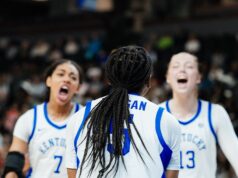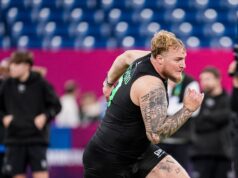New York, NY—The recent decision by a federal appeals court to allow former NFL head coach Brian Flores’ racial discrimination lawsuit to move forward is more than just a legal victory — it’s a warning shot to the NFL, NBA, and MLB about deeper, unresolved issues regarding equity, access, and accountability.
While Flores’ case centers on discriminatory hiring practices within the NFL, the ruling highlights a systemic problem that extends well beyond the sidelines and into the press boxes of America’s biggest sports leagues.
Independent & Minority Media Shut Out
Independent and minority-owned media organizations continue to face substantial barriers when attempting to gain access to events hosted by the NFL, NBA, and MLB. Despite these leagues promoting their diversity initiatives publicly, the reality behind the scenes tells a different story.
Too often, credentialing processes and media access decisions are left to teams or third-party entities that operate with little transparency and even less accountability. In essence, these organizations are allowed to self-govern, creating a system where personal biases and institutional favoritism thrive.
Requests from independent media for fair representation, especially from publications serving Black and Brown communities, are frequently ignored or denied without explanation. When concerns are raised, they’re often dismissed or fall on deaf ears.
The Flores Ruling Is a Wake-Up Call
On Thursday, the 2nd U.S. Circuit Court of Appeals upheld a lower court decision allowing Brian Flores’ racial discrimination claims to proceed to trial. Flores alleges the NFL and three teams — the Denver Broncos, New York Giants, and Houston Texans — engaged in sham interviews that violated the Rooney Rule, a policy intended to promote diversity in hiring.
What’s notable about the ruling is the court’s sharp criticism of the NFL’s arbitration process. Judge Jose A. Cabranes blasted the league’s policy requiring disputes to be heard by Commissioner Roger Goodell, calling the setup “unworthy even of the name arbitration.”

In other words, the league tried to serve as both judge and defendant — and the court wasn’t having it.
The case now moves forward, keeping alive claims not just of personal discrimination against Flores, but of systemic bias baked into the league’s hiring culture. Two other coaches, Steve Wilks and Ray Horton, joined the suit but were compelled to arbitration.
A Pattern Across Major Leagues
The same cultural and structural blind spots that led to Flores’ lawsuit also plague how leagues interact with the media — especially smaller, independent, and minority-run outlets.
Whether it’s an NFL team denying access to a Black-owned sports website, an NBA franchise overlooking Latino journalists, or an MLB club ignoring media requests from outlets covering underserved communities, the result is the same: silenced voices and a lack of representation.
It’s not just about fairness. It’s about legitimacy. Suppose the NFL, NBA, and MLB want to be taken seriously when they speak about equity. In that case, they must ensure those covering their sports reflect the diversity of those who play them — and that includes fair access for independent and minority press.
Ignored Complaints Will Lead to More Lawsuits
If these leagues continue to ignore legitimate complaints from minority voices — whether they’re on the field or in the press box — they will likely face more legal challenges, potentially as high-profile as Flores’. The ruling from the 2nd Circuit shows that courts are increasingly willing to challenge internal league mechanisms that fail to meet standards of fairness and independence.
In 2023, Judge Valerie Caproni wrote that the accounts from Flores and his co-plaintiffs reflected “a long history of systematic discrimination” in the NFL. That same phrase could apply just as easily to the broader sports media landscape.

Time for True Accountability
The path forward is clear. Major sports & colleges must:
Reform their arbitration and complaint systems to ensure transparency and independence
Listen and respond meaningfully to concerns from minority and independent journalists
Stop delegating access decisions to biased gatekeepers with unchecked power
Proactively include a wide range of voices in media coverage, credentialing, and partnerships
Anything less is just more performative progress.
The Brian Flores case may have started with hiring discrimination — but its implications reach far beyond the NFL’s coaching carousel. If the leagues don’t take these issues seriously, this won’t be the last time they find themselves on trial for failing the communities they claim to support.
Information for this article was sourced from court documents, the Associated Press, and the 2nd Circuit Court of Appeals.






